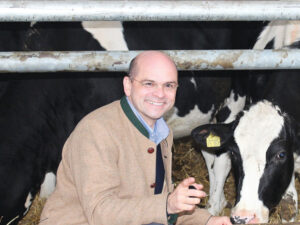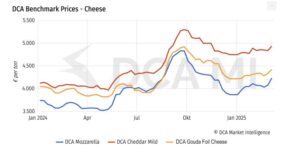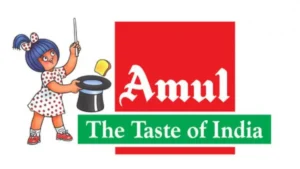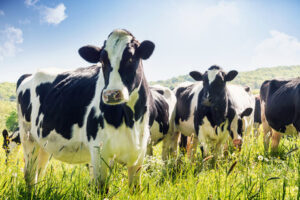
Luxembourg’s agricultural sector is facing significant challenges due to rising production costs, prompting farmers to increasingly depend on EU subsidies and sparking protests for fair milk prices across the bloc.
One of the consequences resulting from the current situation, according too Hahn, who works on a family-operated dairy farm with more than 100 cows and extensive cropping land, is that farmers rely more on the EU’s so-called eco-schemes, which allows them to gain subsidies by farming in ecological manner. The Chamber president explained that this might negatively affect yield, but that compensations can make up for those losses.
Nevertheless, Hahn also drew attention to the fact that there are significant delays in the benefit payments of the scheme, with some farmers already waiting for more than a year and therefore struggling with liquidity.
Ensuring long-term competitiveness
Hundreds of dairy farmers on Monday once again took to the streets of Brussels to protest for fair milk prices in the EU as the bloc’s agriculture ministers convened for a meeting on administrative simplification, European productivity, and protection from outside competition.
Speaking to RTL, Luxembourg’s Agriculture Minister Martine Hansen emphasised that she immediately sought to negotiate with farmers in the Grand Duchy as soon as the prospect of protests arose. She further noted that administrative simplification is a priority in future talks.
Authorities also intend to subject the supply chain to an extensive review process to determine “where the shortcomings are, who makes profits, and whether these margins are warranted”, according to Hansen. She concluded by saying that goals in the sector have to be realistic to ensure long-term competitiveness.








